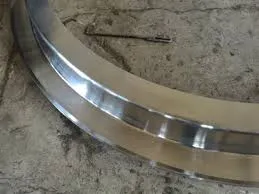- Afrikaans
- Albanian
- Amharic
- Arabic
- Armenian
- Azerbaijani
- Basque
- Belarusian
- Bengali
- Bosnian
- Bulgarian
- Catalan
- Cebuano
- China
- China (Taiwan)
- Corsican
- Croatian
- Czech
- Danish
- Dutch
- English
- Esperanto
- Estonian
- Finnish
- French
- Frisian
- Galician
- Georgian
- German
- Greek
- Gujarati
- Haitian Creole
- hausa
- hawaiian
- Hebrew
- Hindi
- Miao
- Hungarian
- Icelandic
- igbo
- Indonesian
- irish
- Italian
- Japanese
- Javanese
- Kannada
- kazakh
- Khmer
- Rwandese
- Korean
- Kurdish
- Kyrgyz
- Lao
- Latin
- Latvian
- Lithuanian
- Luxembourgish
- Macedonian
- Malgashi
- Malay
- Malayalam
- Maltese
- Maori
- Marathi
- Mongolian
- Myanmar
- Nepali
- Norwegian
- Norwegian
- Occitan
- Pashto
- Persian
- Polish
- Portuguese
- Punjabi
- Romanian
- Russian
- Samoan
- Scottish Gaelic
- Serbian
- Sesotho
- Shona
- Sindhi
- Sinhala
- Slovak
- Slovenian
- Somali
- Spanish
- Sundanese
- Swahili
- Swedish
- Tagalog
- Tajik
- Tamil
- Tatar
- Telugu
- Thai
- Turkish
- Turkmen
- Ukrainian
- Urdu
- Uighur
- Uzbek
- Vietnamese
- Welsh
- Bantu
- Yiddish
- Yoruba
- Zulu
ທ.ວ. . 05, 2024 05:59 Back to list
Exploring the Properties and Applications of Aluminum Silicon Alloys in Modern Engineering
The Importance of Aluminum-Silicon Alloys
Aluminum-silicon alloys are a crucial category of materials in modern manufacturing and engineering, known for their excellent performance across various applications due to their unique properties. As the name suggests, these alloys primarily consist of aluminum and silicon, with silicon content typically ranging from 5% to 25%. The combination enhances the mechanical properties of aluminum, making these alloys exceptionally useful in different industrial sectors.
One of the most outstanding characteristics of aluminum-silicon alloys is their excellent castability. The addition of silicon lowers the melting temperature of aluminum, allowing for easier mold filling and more intricate designs in cast products. As a result, these alloys are widely used in die casting applications, especially in the automotive industry. Components like engine blocks, transmission housings, and wheels often utilize aluminum-silicon alloys due to their ability to retain dimensional stability even after extensive machining.
The Importance of Aluminum-Silicon Alloys
Another significant advantage of these alloys is their reduced density compared to many other materials. Aluminum-silicon alloys are lighter than steel and other metals, leading to weight savings in products. In the automotive industry, for instance, lighter components contribute to improved fuel efficiency and overall vehicle performance. The combination of reduced weight and high-strength characteristics allows for the design of vehicles that are both efficient and capable of withstanding rigorous operational conditions.
aluminum silicon alloy

In addition to their physical properties, aluminum-silicon alloys also possess excellent thermal conductivity. This makes them suitable for applications requiring efficient heat dissipation, such as heat exchangers and electronic components. The ability to manage heat effectively reduces the risk of overheating, enhancing the longevity and performance of various devices.
Moreover, these alloys can be further modified through heat treatment and alloying with other elements such as copper, magnesium, and manganese. These modifications allow engineers to tailor the properties of aluminum-silicon alloys to specific applications, improving strength, ductility, and hardness based on the requirements. This versatility makes aluminum-silicon alloys indispensable in industries ranging from aerospace to consumer electronics.
The manufacturing processes involved in producing aluminum-silicon alloys have also advanced significantly. Techniques such as vacuum casting and die casting have improved the quality and consistency of these materials, leading to better overall product performance. The ability to produce complex geometries with high precision has opened up new possibilities for innovative designs and applications.
In conclusion, aluminum-silicon alloys play an integral role in modern engineering and manufacturing due to their favorable properties. Their excellent castability, corrosion resistance, lightweight nature, and adaptability for various applications make them a go-to choice across multiple industries. As technology continues to advance and the demand for high-performance materials grows, aluminum-silicon alloys are poised to remain essential components in the development of next-generation products. Whether in automotive, aerospace, or electronics, these alloys exemplify the perfect balance of strength, efficiency, and innovation, shaping the future of material science.
-
Ductile Iron Casting Solutions High-Strength & Corrosion-Resistant
NewsMay.13,2025
-
Custom Low Nitrogen Condensing Gas Boilers for Domestic Hot Water
NewsMay.13,2025
-
EN877 Grey Cast Iron Pipe Casting Custom Epoxy Coating Solutions
NewsMay.12,2025
-
Cast Silicon Aluminum Heat Exchanger for Commercial Boilers High Efficiency
NewsMay.12,2025
-
Custom Colloidal Silica Casting High-Precision & Durable Solutions
NewsMay.11,2025
-
Premium Metal Sand Casting Services Custom & ODM Solutions
NewsMay.11,2025


